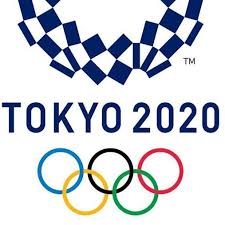American athletes welcomed the decision to postpone the Tokyo Olympics on Tuesday, exhaling a collective sigh of relief tinged with disappointment as they began to set their sights on 2021.
As the deadly coronavirus pandemic swept into all 50 states of America, US athletes preparing for the Olympics had seen years of carefully choreographed training plans left in tatters.
Powerhouse swimmer Katie Ledecky, expected to be one of the stars of the Tokyo Games, had been left without a pool to train in as restrictions in California shut down the Stanford University facilities.
Track and field star Noah Lyles — the reigning 200m world champion — had been denied regular access to a running track. Instead Lyles, who suffers from allergies and asthma, had been forced to train in a park in Florida.
Lyles and Ledecky’s problems had become all too common for US athletes, who had found themselves torn between the need to comply with local regulations restricting non-essential movement while simultaneously sticking to training regimens designed to help them prepare for Tokyo.
Lyles had no reservations about the decision to postpone the Games — and vowed to be ready for Tokyo in 2021.
SAFETY FIRST
“Straight up I’m tired of hearing I’m sorry like my puppy just died,” Lyles wrote on Twitter. “We will overcome this like everything else and then go win the Gold in 2021!”
In a later interview with NBC, Lyles said the safety of athletes was paramount.
“Safety first,” Lyles told NBC. “The last thing we want is for anybody to get sick. I can train for another year, but if the whole world goes through a crisis and everybody gets sick, we won’t have an Olympics at all.”
Lyles had already achieved a qualifying standard to compete in Tokyo. But the 22-year-old believes many athletes would have missed out through not being able to train properly had the games gone ahead.
“It would have been very hard for a lot of us to even get a qualifying time,” Lyles said. “That’s the situation a lot of athletes would have been in.”
Ledecky meanwhile described an increasingly fraught hunt for facilities after her regular training pool at Stanford was closed.
After seven days without putting a toe in the water, she finally swam over the weekend in a private pool in someone’s backyard.
“At certain points there were times we didn’t know if cancellation was still on the table or if there could be a postponement until the end of this year or some other time,” she told the Washington Post. “It’s good to have clarity now.
‘SNEAKING AROUND’
Ledecky’s US swimming team-mate Nathan Adrian meanwhile spoke of mixed emotions after learning of the postponement.
“Disappointment, obviously, because we’d be training for four years…but then the other side of the coin is relief,” said Adrian, 31, who had been targeting a fourth Olympic Games appearance.
Adrian, who underwent surgery for testicular cancer last year, is from Washington state, one of the epicenters of the COVID-19 crisis in the US.
“My parents are still up there along with my brother and sister. And my parents are in the risk category. I feel guilty if I’m trying to go out and train, sneaking around trying to find a grey area that allows me to get into a pool or lift some weights,” he told NBC.
Other athletes meanwhile took a defiant stance, immediately turning their attention to a Tokyo Olympics sometime in 2021.
“We train hard. We put our blood, sweat and tears into this,” said Emma Coburn, the 2017 women’s steeplechase world champion.
“We dream for this. Our dreams are not cancelled, they are just postponed. The safety of athletes, our communities and our world is most important. This is the right thing to do,” Coburn added.
Rai Benjamin, the 400m hurdles silver medallist at last year’s World Championships, acknowledged disappointment in a social media post.
“This was THE year. The work, the sacrifice, the determination, but I understand,” Benjamin wrote. “Everyone stay safe and Tokyo we’ll see you soon.” (AFP)

